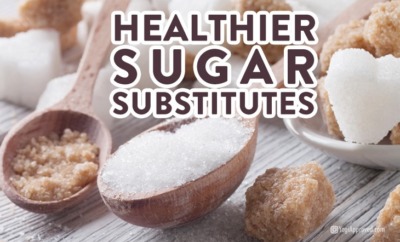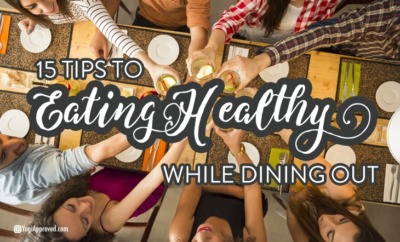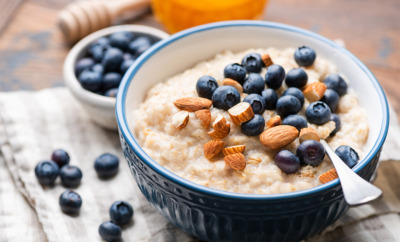Nutrition and Mental Health: 8 Essential Foods That Elevate Your Mental Wellness

Discover how eating well is the connection between nutrition and mental health.
Avoiding processed foods and sugar that increase inflammation and caloric intake is extremely important to our physical and psychological well-being. But how about we shift our focus on foods away from solely weight loss purposes and instead, think about our nutrition and mental health?
Food for thought: there is a direct correlation between nutrition and mental health, meaning eating healthy can affect you emotionally.
In this read, let’s consider your nutrition and mental health, and how certain food choices can nourish your mind. Eating well for mental health is about integrating into your diet food meant for more than whittling your waistline. It is more for your peace of mind.
I am an avid fan of fermented foods, which help ease and lower my stress and anxiety levels. Kombucha is my favorite, and I can never eat enough kimchi! Garlic is great and turmeric is terrific when it comes to eating well for mental health.
8 Essential Foods to Eat for Elevating Nutrition and Mental Health:
The next time you go grocery shopping, add one or more of the following eight foods to your list.
1. Avocados
Avocados, our favorite bright green fruit, are high in heart healthy fats, and full of vitamin K and folate. Folate is a folic acid found mainly in dark green leafy vegetables that support your brain by protecting it against stroke.
Avocados, known to help memory and concentration, also contain a high dose of an oxygen-containing carotenoid called lutein. As studies have shown, lutein is linked to improved brain function.
2. Nuts
If you’re looking for a plant-based source of omega-3 fatty acids credited for helping nutrition and mental health, look no further than the snack section of your grocery store. Almonds, pecans, and cashews, which contain the highest content of omega-3 fatty acids (like you would find in salmon), are mentally healthy, just as they are heart-healthy.
With a hefty dose of magnesium, nuts (especially cashews) provide oxygen to the brain and act as a defense against depression. A compound called phenylalanine, found in almonds, helps produce neurotransmitters like dopamine and serotonin in the brain that can elevate your mood.
The phenylalanine compound is also connected to the reduction in the symptoms of Parkinson’s Disease.
Curious about the health benefits of magnesium? Read: Mighty Magnesium: What It Does For Your Body and Why You Need It In Your Diet
3. Olive Oil
Since the Mediterranean-style diet was first introduced in the 1960s, pure, extra-virgin olive oil has become quite popular. This oil’s rise to fame was when the International Olive Oil Council promoted it as a key ingredient in the 1990s.
This type of olive-pressed oil contains polyphenols that aid in improving learning and memory, and removing the effects of proteins linked to Alzheimer’s Disease.
However, many brands tend to cut their product with vegetable oil or seed oil, significantly reducing brain health benefits. Before picking up your next bottle, do your research to find the best brands that contain pure, extra-virgin olive oil.
4. Spinach
Spinach and other leafy greens have anti-stress effects, offering your brain a substantial amount of folic acid, a tremendous deterrent to depression. Spinach is seen as a superfood, helping fight off insomnia, which is strongly connected to mental impairments and reducing dementia in older adults.
5. Tomatoes
Tomatoes carry an “oral vaccine” that can delay the onset and progression of Alzheimer’s Disease by fighting off cell damage, so consume them regularly! Lycopene, a carotenoid responsible for the fruit’s red hue, is categorized as a phytonutrient, a substance that assists memory, attention, logic and concentration.
Lycopene is also believed to benefit nutrition and mental health by preventing various mental diseases.
6. Whole Grains
Too often, we ingest simple carbohydrates that lead to rises in blood sugar. Foods classified as whole grains, such as beans, oats, soy and wild rice, contain complex carbs that produce glucose more slowly. This slower process allows the body to utilize the carbs as a more stable and consistent energy source.
Beyond physical health, whole grains help the brain absorb tryptophan, an essential amino acid used to make protein. When eaten with a source of protein like edamame, lentils or tempeh, whole grains can further boost brain function by reducing symptoms of depression, stress and anxiety.
A Vegan’s Guide to Protein: 20 Protein-Dense Foods You Should Add to Your Diet
7. Yogurt
Yogurt is more than just a delicious base for a fruit parfait. Yogurt is an excellent source of probiotics, often associated with digestive and mental health, playing a vital role in reducing stress and anxiety. Also an excellent source of magnesium and potassium, yogurt helps oxygen reach the brain, further improving its ability to function.
8. Dark Chocolate
Saving the best for last, dark chocolate holds high levels of flavonoids, a type of antioxidant that raises attention, enhances mood and memory and helps fight cognitive decline as adults age. Although this sweet treat contains cocoa not found in milk chocolate, it should still be enjoyed in small doses.
When you do indulge, the darker the chocolate, the better, as 85% cocoa or more is most beneficial for optimal nutrition and mental health.
Did you know when it comes to your brain health, your diet plays a major role? Read: Eat These 5 Natural Energy Foods to Boost Your Brain Power and Increase Productivity
Food for Thought: The Connection Between Nutrition and Mental Health is What You Eat and How Well You Eat
Eating healthy daily can be challenging, but it’s all mind over matter. Food for thought: there is a direct correlation between nutrition and mental health meaning eating healthy can affect you emotionally.
In other words: food affects your mood, and science proves you can actually improve your mood with food. You can even train your brain to crave healthy food. I assure you, any whole foods and healthy fats that help boost my brain’s ability to function, focus, and feel good, my pantry always has plenty of it.
Answer These 3 Questions to Help Improve Your Mood With Food
Are any of these foods a staple in your shopping cart? What is your go-to food for elevating your mood and mental health?


This Month's Letter
From the Editor
Monthly motivation and food for
thought from our founder.





























